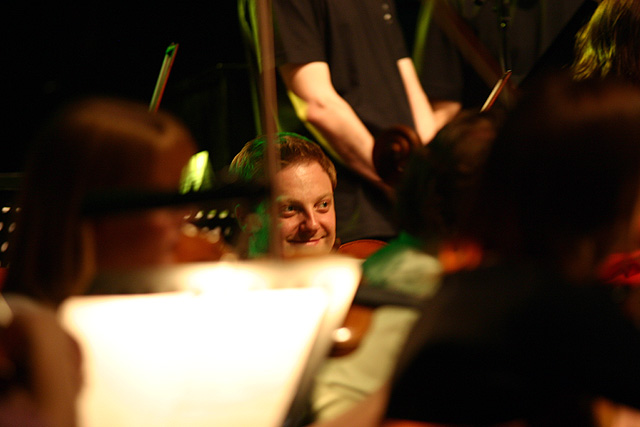I really seem to be getting into this whole poetry translation thing – who'd have thought? This time it's a translation from Swedish of a poem by the national bard J. L. Runeberg. I was asked to translate it for a friend's wedding next week, where this will be sung in a rather dark setting by Sibelius. This translation was a challenge because of the iambic metre and rhyming structures of the original, and here's what I eventually came up with. All comments most welcome!
På silvermolnets kant satt aftonstjärnan,
från lundens skymning frågte henne tärnan:
"Säg, aftonstjärna, vad i himlen tänkes,
när första kyssen åt en älskling skänkes?"
Och himlens blyga dotter hördes svara:
"På jorden blickar ljusets änglaskara,
och ser sin egen sällhet speglat åter;
blott döden vänder ögat bort och gråter."
(J. L. Runeberg)
On silver clouds there sat the evening star,
when through the dusk a maid called from afar:
"O tell me, star, will heaven think amiss,
when first I bless my lov'd one with a kiss?"
And heaven's bashful daughter thus did sigh:
"A choir of angels lifts their heads up high,
and sees their grace reflected in night's keep;
so death doth turn his eyes away and weep."
(trans. DH)
Thursday, May 17, 2007
Subscribe to:
Post Comments (Atom)


3 comments:
Just a little note here: Runeberg was Finnish (born in Finland) though from a Swedish speaking family (like Sibelius), and is considered to be the national poet of Finland.
Thanks for that, though I think that's what I said in the original post...
Nice post. It shows how rich could a literature be in terms of translation.Through translating shows the rich blend of knowledge and culture in a society.Whether in Swedish translation or in any foreign language translation helps one to get acquainted with the thoughts, traditions, principles and actions of the people from the region.
Post a Comment